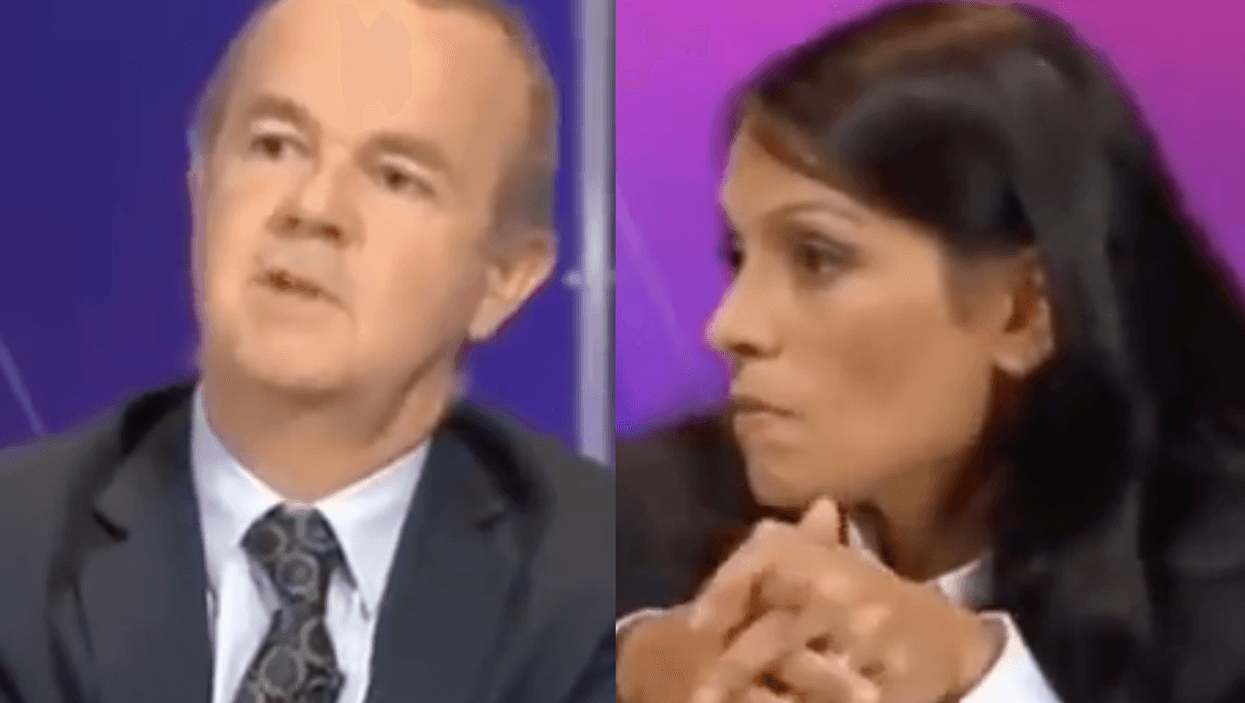News
Narjas Zatat
Aug 13, 2020
Priti Patel has had a very eventful tenure as Home Secretary so far.
Not long after she took the job, the Home Office's most senior official resigned, making some very serious claims about her behaviour on his way out. She denied all allegations against her, but then apologised last month after a review found that she had breached the ministerial code for behaviour.
Patel’s appointment by Boris Johnson was met with a chorus of concerns regarding her past statements and voting record on equalises and human rights.
Now a 2011 clip of her appearing to endorse capital punishment has resurfaced online.
In light of her comments on migrants crossing the English Channel, people have been re-sharing a 2011 episode of the BBC's Question Time, where guest and Private Eye editor Ian Hislop took apart her argument in favour of the death penalty, saying the inaccuracy of sentencing in the UK would mean innocent people would be killed by the state.
He began telling a studio audience, “For 50 years Private Eye has pretty much, in most issues, exposed a miscarriage of justice and a lot of them have been murders...Over the years large numbers of these cases have been found to be entirely wrong. And the men convicted – and a couple of women – have been found innocent.”
Hislop added, “We would have killed those people, and in some of those very high profile cases which involve terrorism cases, we would have made very dangerous new martyrs by executing people who turned out not to have committed the murders involved. So on a purely practical basis, I think it would be incredibly dangerous to have capital punishment back.”
In response, Patel argued capital punishment can act as a “deterrent” to serious crime. She said, “This is really about our criminal justice system actually, and if any conviction for example, you need ultimate burden of proof.”
But the point Hislop was trying to make is that in some cases, there are mistakes. Hislop interjected, “Are you saying they were guilty? All these people?”
“No I’m not saying they were guilty, obviously,” Patel hastened to add.
“So they would be dead?” Hislop suggested, if there was capital punishment.
“The point is,” Patel steam rolled ahead, “it’s about having deterrents. If you have strong deterrents –“
At this point, Hislop once more interrupted with a great point. "It’s not a deterrent killing the wrong people."
According to Amnesty International, a global human rights organisation, “scientists agree, by an overwhelming majority, that the death penalty has no deterrent effect”.
"The results reveal that most experts do not believe that the death penalty or the carrying out of executions serve as deterrents to murder, nor do they believe that existing empirical research supports the deterrence theory.
In fact, the authors report that 88.2% of respondents do not think that the death penalty deters murder - a level of consensus comparable to the agreement among scientists regarding global climate change."
It's also worth noting that Patel has since clarified that she has never been an "active supporter" of the death penalty and says previous clips of her have been taking "out of context".
But we'll let you be the judge of that.
More: Lessons learned: What did the pandemic teach me about love and compassion?
Top 100
The Conversation (0)














